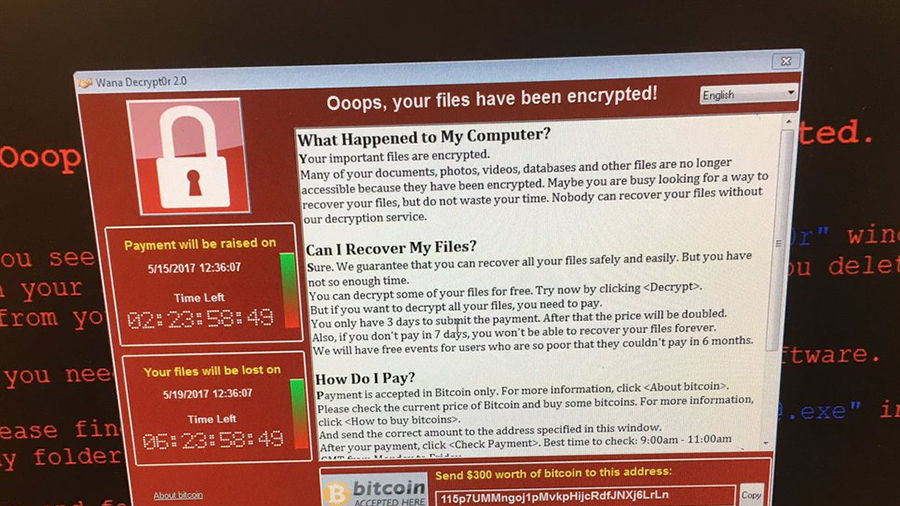After WannaCry, here’s how businesses can fight ransomware
With the right tools and planning, you can beat the bad guys

If there’s one thing that the events which occurred at the end of last week taught us, it’s that when you have your own business, security is something you need to take very seriously. Of course, we’re not talking about burglar alarms – although the defence of your premises is an important consideration itself – rather we mean online security, and protecting yourself from incidents such as the WannaCry ransomware which has been plastered across the headlines over the weekend.
Cybercriminals are always actively looking to get into business IT systems and steal lucrative data, from company secrets to customer transactions. According to a 2016 study by ISP Beaming, cyber-attacks costs British businesses an estimated £34 billion (around $45 billion, AU$60 billion) a year.
There are a number of tactics criminals use to steal money from companies, and ransomware is one of the most common. It’s a form of malicious software that encrypts files, preventing the user accessing them until they pay a ransom to unlock the data.
Research by security firm Malwarebytes claims that ransomware attacks have affected more than 40% of businesses over the past year. In this article, we’ll explore how you can prevent such malware attacks, or deal with them if you happen to be unfortunate enough to get hit.

Back up your data and assets
If you haven’t yet been affected by a ransomware attack, then you have an opportunity to put safeguards in place to keep your precious data safe. With the right systems, you’ll be able to protect your business assets.
One of the best ways to do this is by ensuring that you regularly back up your key business files. This is, of course, something you should be doing already. Running regular backups is not only a good defence against ransomware, but also other disasters which could occur such as disk failure.
Backing up data needn’t be a complicated or lengthy process. With the right software solution, you can back up your data without any hassle, and you don’t need any IT expertise. For basic needs, Acronis Backup 12 is one of the most popular products on the market, costing £45 (around $60, AU$80) a year. The tool only takes three clicks to get up and running, and it’s currently compatible with 16 platforms. These include Office 365, VMware and Azure. You can also choose from four different encryption standards.
Sign up to the TechRadar Pro newsletter to get all the top news, opinion, features and guidance your business needs to succeed!
Naturally, there are other basic security considerations that you should bear in mind. You should always ensure that operating systems and software alike are updated with the latest security patches. And you shouldn’t be running an outdated OS such as Windows XP, which is no longer patched – remember that the WannaCry ransomware leveraged an unpatched vulnerability in this operating system (though it's now been patched, such is the seriousness of this incident).
Also, when downloading files from the web, always put caution first, and never download or install anything from what might seem to be a suspicious source. The same goes for iffy-looking emails and potentially malware-laden attachments.
Invest in computer security
Having antivirus software installed on your systems is also crucial in preventing ransomware attacks. You’ll find that a typical home security package won’t be powerful enough, so it’s worth looking for a business-oriented option. Luckily, there’s plenty of choice, with products available that support businesses of varying sizes.
AVG Internet Security Business Edition is an excellent example. Available to buy starting at £33 online (excluding VAT, for a year’s subscription covering 1 PC) – that’s around $43, AU$57 – it provides you with tools to protect your business computers, email accounts and network from threats such as ransomware, spam and phishing.
The software offers 24/7 protection, and you’re sent an instant email alert if a threat is identified. What’s more, it comes with a selection of remote admin tools that you can use to manage your security while away from the office.
- 1
- 2
Current page: Introduction and protecting your assets
Next Page Free resources and successful strategiesNicholas Fearn is a freelance technology journalist and copywriter from the Welsh valleys. His work has appeared in publications such as the FT, the Independent, the Daily Telegraph, The Next Web, T3, Android Central, Computer Weekly, and many others. He also happens to be a diehard Mariah Carey fan!